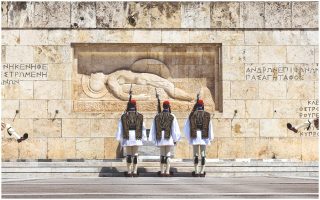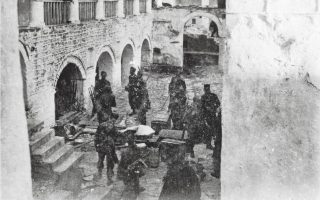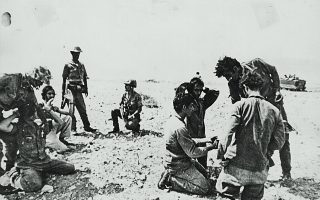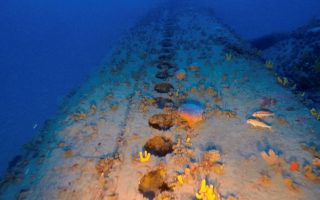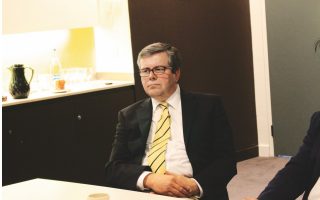A digital safe for cultural heritage
NYC-born Jacob Moe speaks about a new initiative that aims to preserve and curate audiovisual material on the Cyclades islands
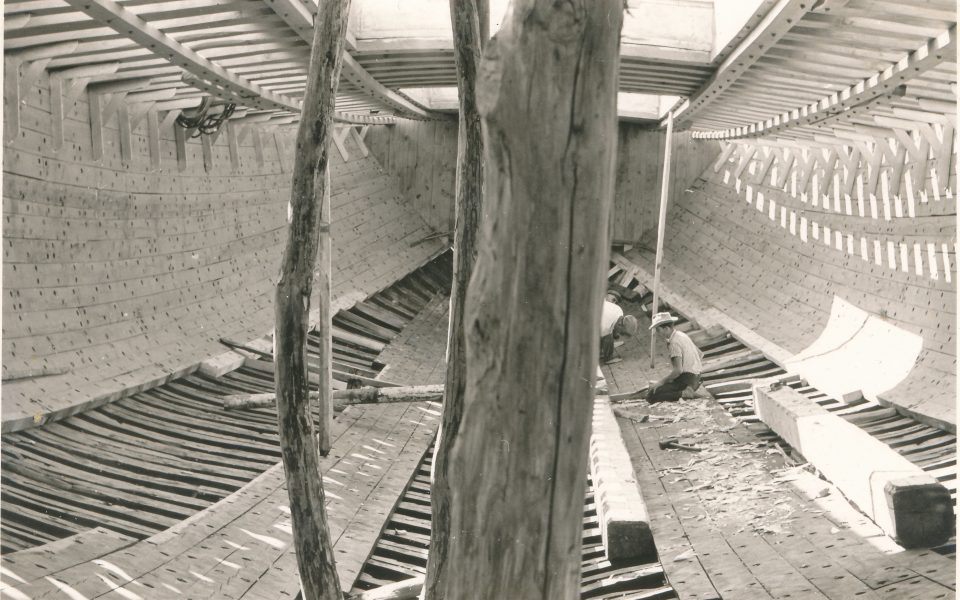
Sometimes it takes an outsider to appreciate the value and fragility of a local culture. An ambitious new initiative by local and international experts aims to collect, preserve and disseminate the largely untapped and endangered audiovisual heritage of Greece’s Cyclades islands by creating an online archive and a residency program.
Archipelago Network is the brainchild of Jacob Moe, a New York City-born documentarian and translator who shares his time between Athens and Syros, the administrative capital of the country’s most-visited island group. Speaking in a video call from his home in a village on the island’s largely undeveloped northern side, the 31-year-old says the idea dawned on him around five years ago while he was running a film festival at different locations in collaboration with various communities around the island.
“We came into contact with people who possessed audiovisual collections of their own, primarily 16mm and Super 8 film shot in Syros in the 1960s and 70s,” Moe says.
As he quickly found out, the vulnerability and the precarity of the aging analog content required more attention and better organization than the ephemeral festival format provided.
“The idea was born out of this need to begin preserving these materials in a systematic way. We felt they were neglected and very unique to the culture and the landscape of the Cyclades,” he says.
In the process, he realized more was at stake.
“Audiovisual archives have a unique ability to embody subjectivity, emotion and affect,” Moe says.
“By preserving endangered collections of material, we can effectively safeguard vanishing aspects of our not-too-distant past, gaining a better understanding of ourselves, of others, and our shared future,” he says.
The Archipelago Network archive consists of films, photographs, videotapes, audio cassettes and sound recordings, including interviews, field recordings and oral histories from the late 1800s until the appearance of born-digital content on the islands today. It expands as more material is digitized.
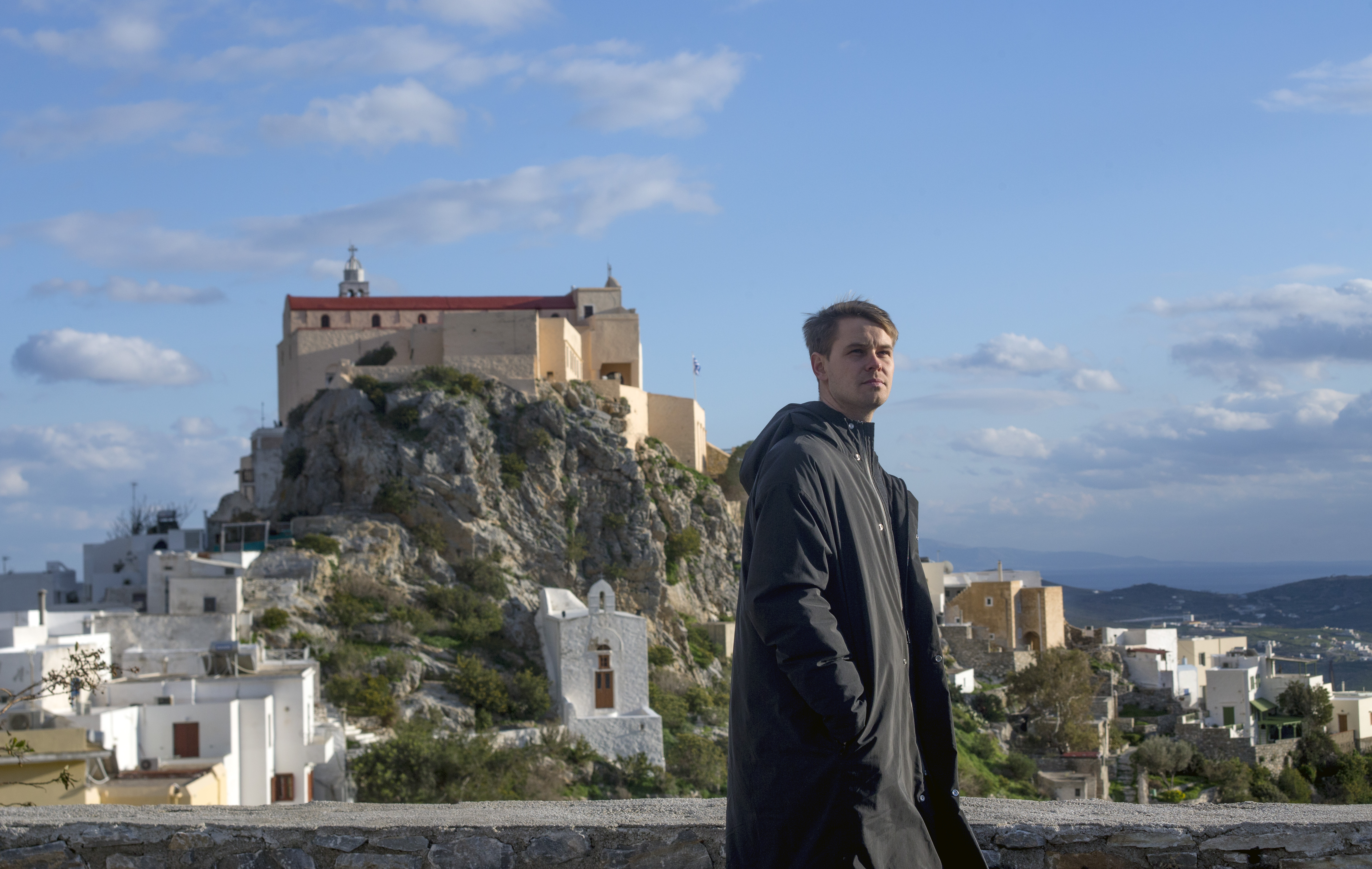
‘Living archive’
The goal is to move beyond the traditional notion of the archive as a static repository of data and information toward a more renewable, open-access platform – “a living archive,” as Moe calls it.
“Forget the idea of a hushed library where you approach a material with the consent of a librarian and white gloves before carefully browsing through the available information. We hope it will be something much more contemporary,” he says.
The team will also establish a research-based residency on Syros so individuals from a wide scope of disciplines can engage with the collected archival material and communicate it to a broader audience at home and abroad.
“This will allow it to depart from this purely archival realm of classification and information to become stories and narratives,” Moe says.
The organization relies on an array of specialized advisers both in Greece and abroad providing ad hoc know-how on issues like copyright law, content management and organizational development.
“The scope is inherently both local and international, so it’s something that needs input from experts and researchers who are also outside of Greece but have some kind of a stake in the islands,” Moe says.
Moe, whose mother is a professor of modern Greek literature at Columbia University, was himself raised speaking Greek, although he has no Greek ancestry. Many of his formative years were spent in Greece, on visits to Athens and the islands for summer vacations and his mother’s research sabbaticals. Upon graduating from Pomona College in California, he came to Greece, where he co-founded the Syros International Film Festival (SIFF) in 2013. After pursuing further studies and work in Sao Paulo, Brazil and Santa Cruz, California, in 2019 he returned to his festival duties on Syros while working to materialize the whole concept of Archipelago Network.
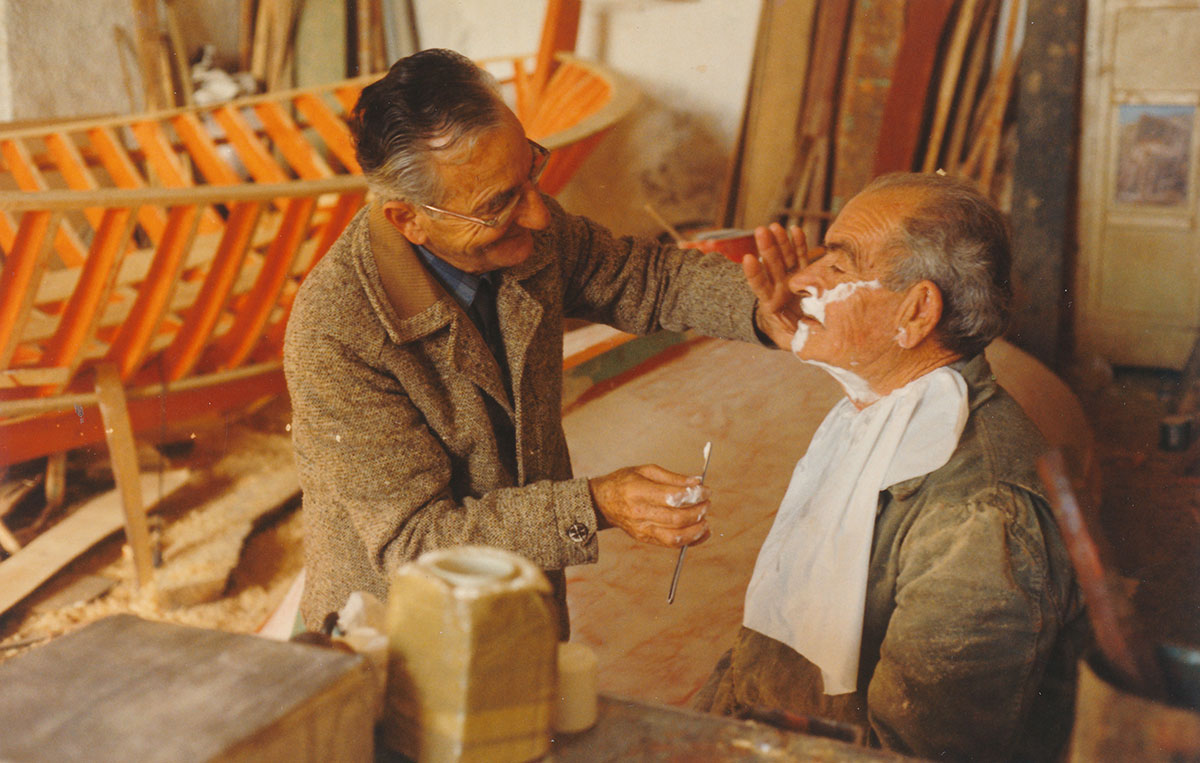
Ships and herbs
The network itself has been developed in collaboration with the Stavros Niarchos Foundation (SNF), which has also thrown its weight behind the first two pilot projects that will formally launch on February 15.
One is an archival module on traditional shipbuilding on Syros. It involves the digitization of audiovisual materials from private and public local collections such as the Industrial Museum of Ermoupoli in the island’s elegant 19th century capital, and the production of five video portraits of surviving representatives of the dwindling craft. In parallel, architecture and ethnography experts have been conducting on-site fieldwork on the social, cultural and economic dimensions of traditional boatbuilding.
Syros emerged as the main industrial, commercial and shipbuilding center of the modern Greek state founded after the War of Independence against the Ottoman Empire, until it was eclipsed by Piraeus.
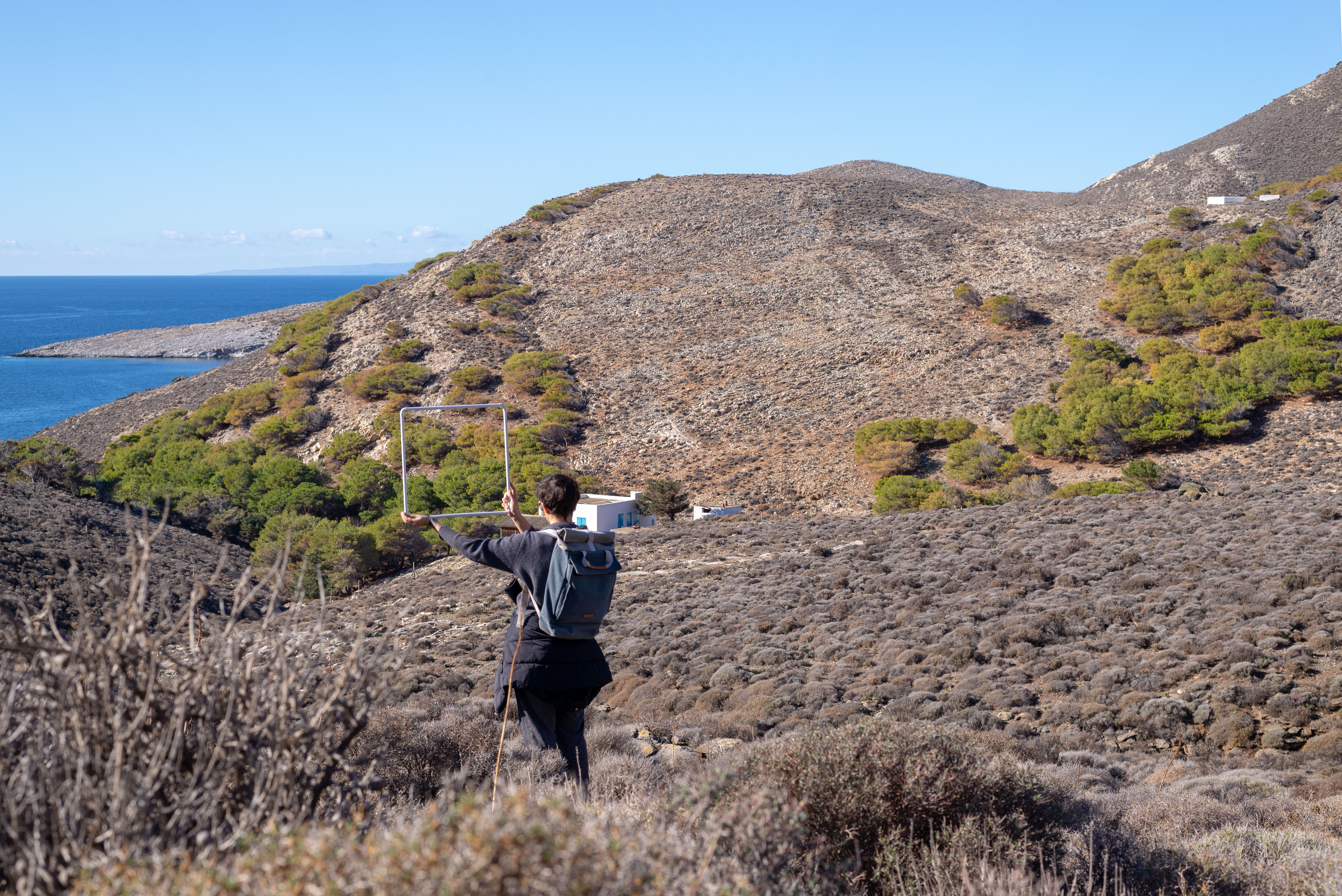
For the second project, named Anthemis after a flower that is native to the area, organizers invited Tinos-based multidisciplinary artist duo Hypercomf (Paola Palavidi and Ioannis Koliopoulos) to Syros for the development of an online herbarium that will host photo quadrats of plant biodiversity, linking them with community archives. It will include photographs, sketches and audio recordings made by botanists, artists, and plant enthusiasts on the island. A portable toolkit for collection of botanical data, fitted inside a custom-made hiking backpack, will soon be available for use by community groups and schools.
“We are basically using the original archives as a jumping-off point for a community-driven plant archive,” Moe says.
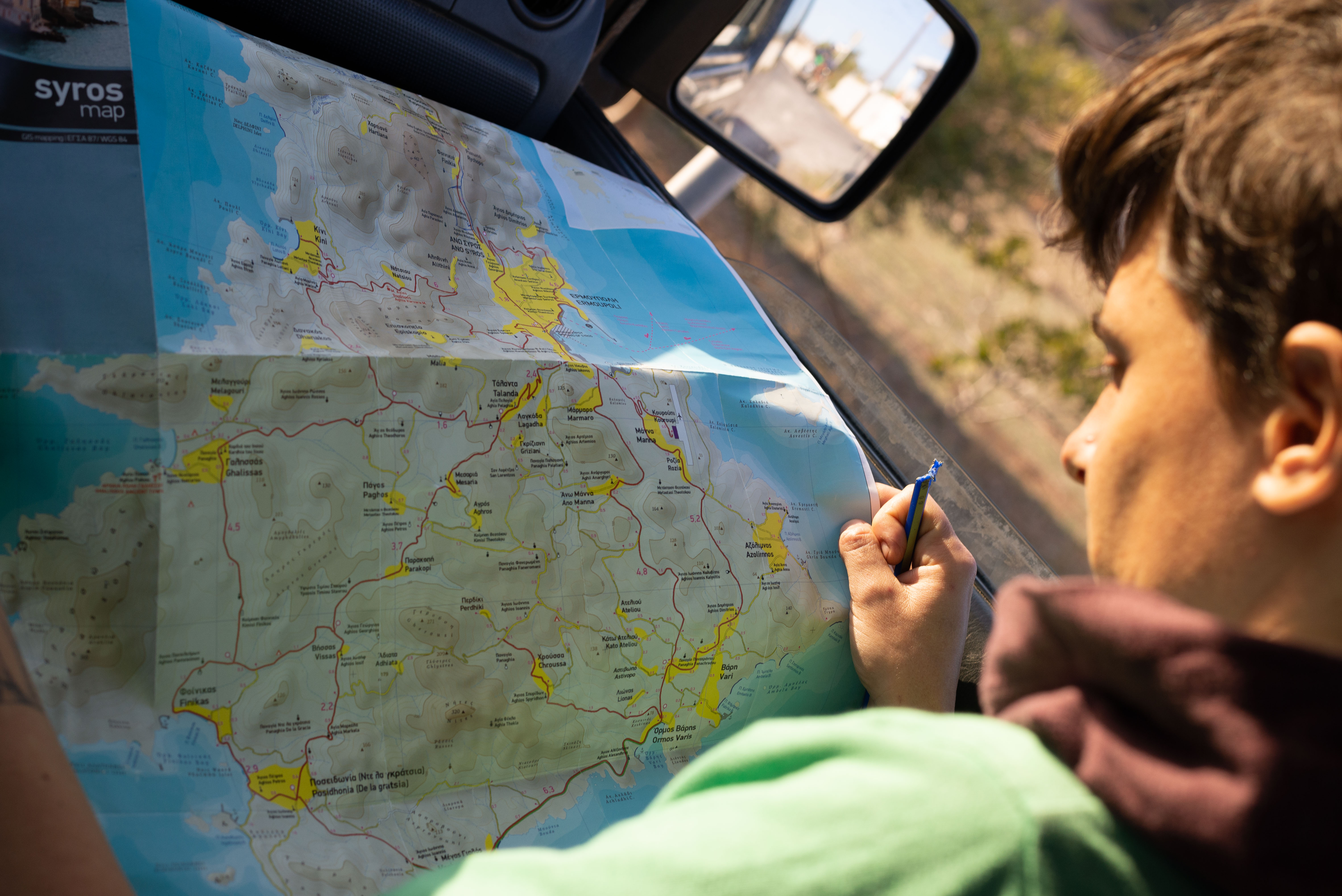
Open access
True to the spirit of initiatives like the EU’s Europeana web portal, Archipelago Network aspires to be an example of open and reusable digital cultural heritage.
“If we’re going through all of this effort to preserve and document these archives, then they really should be available for public viewing and reuse,” Moe says.
“Prioritizing ethical open access is at the core of our mission,” he says.
With the fervent social media-driven celebrity culture already taking its toll on the Cyclades, some are naturally wary of initiatives that aim to create additional interest in its once-pristine islands. Moe is however confident about the sustainable nature of the project, believing it can foster that substantive kind of engagement with a specific place, its history and culture in a manner that is neither passive nor damaging.
“One thing that is definitely on our minds very much is the pace at which the elements that are the focus of this archive are vanishing, which make it all the more urgent,” he says.
“The notion of endangerment is viscerally present for us. There is no next generation.”
For more information visit the Archipelago Network website.

